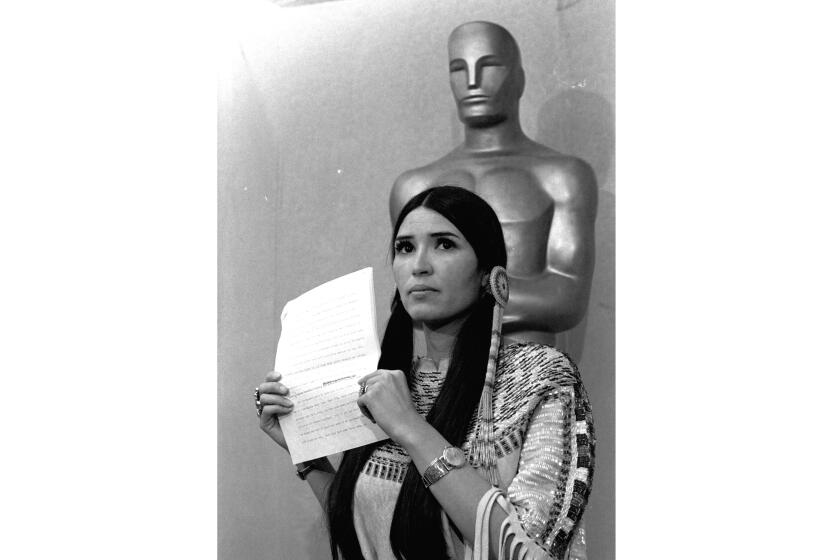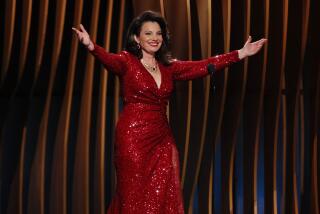Sacheen Littlefeather, activist who declined Brando’s ‘Godfather’ Oscar, dies at 75
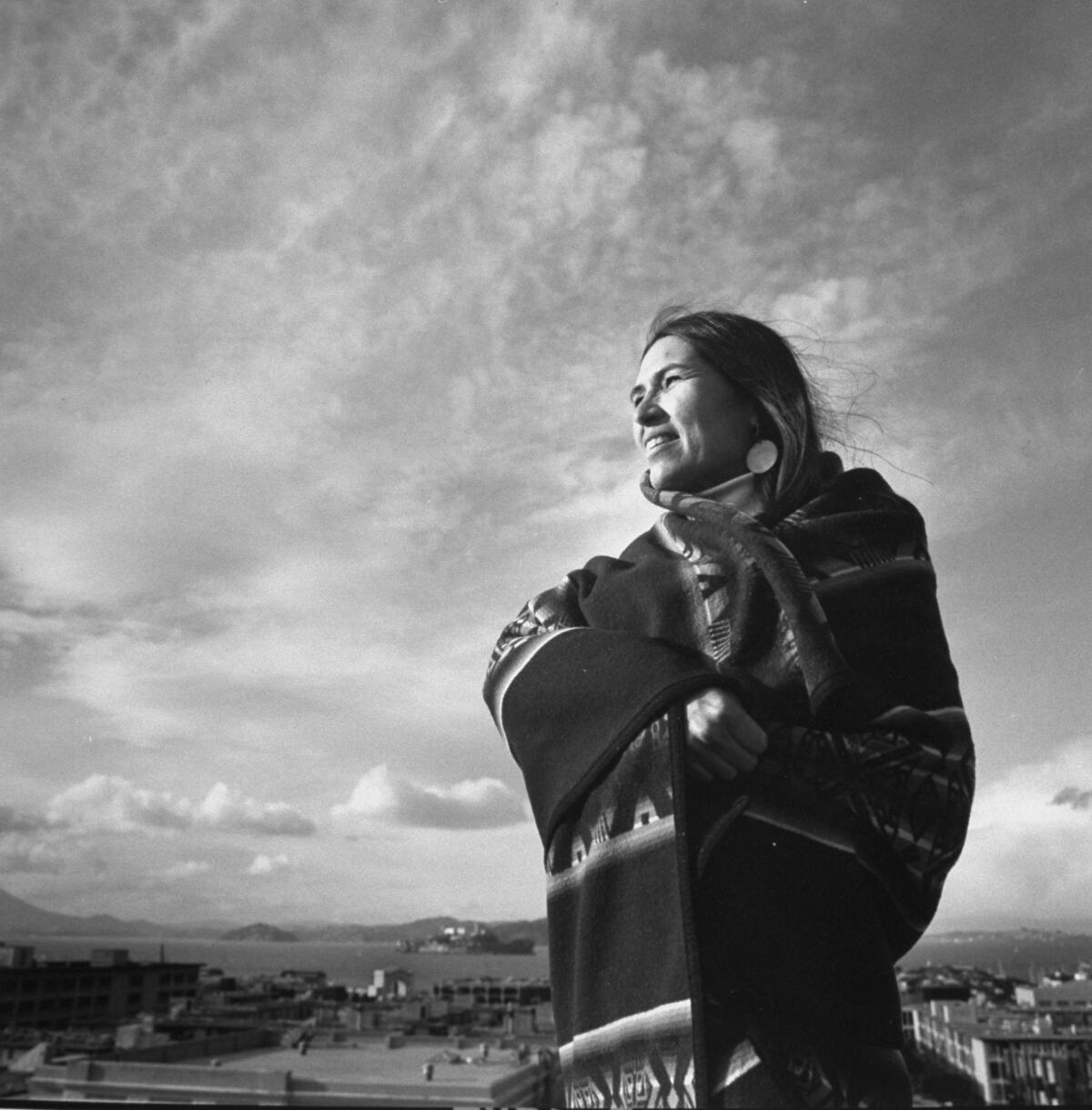
Sacheen Littlefeather, the Native American activist Marlon Brando sent to the 1973 Academy Awards to decline the lead actor Oscar he won for “The Godfather,” died Sunday at age 75.
The Academy of Motion Picture Arts and Sciences announced the news on its social media accounts. In an email to The Times, Littlefeather’s family confirmed her death, saying she died peacefully, surrounded by loved ones at her Marin County home. The family said that the cause was breast cancer.
In one of the most famous moments in Oscar history, Littlefeather took the stage at the Dorothy Chandler Pavilion on March 27, 1973, after Brando’s name was read as the winner. Wearing a fringed buckskin dress and moccasins, Littlefeather refused to take the Oscar proffered by presenter Roger Moore.
Littlefeather, then 26, firmly offered Brando’s regrets, explaining that he would not accept the Oscar because of Hollywood’s mistreatment of Native Americans and the ongoing standoff between Oglala Lakota and American Indian Movement activists and federal officials at Wounded Knee, the site in South Dakota of an 1890 massacre of Lakota by the U.S. Army.
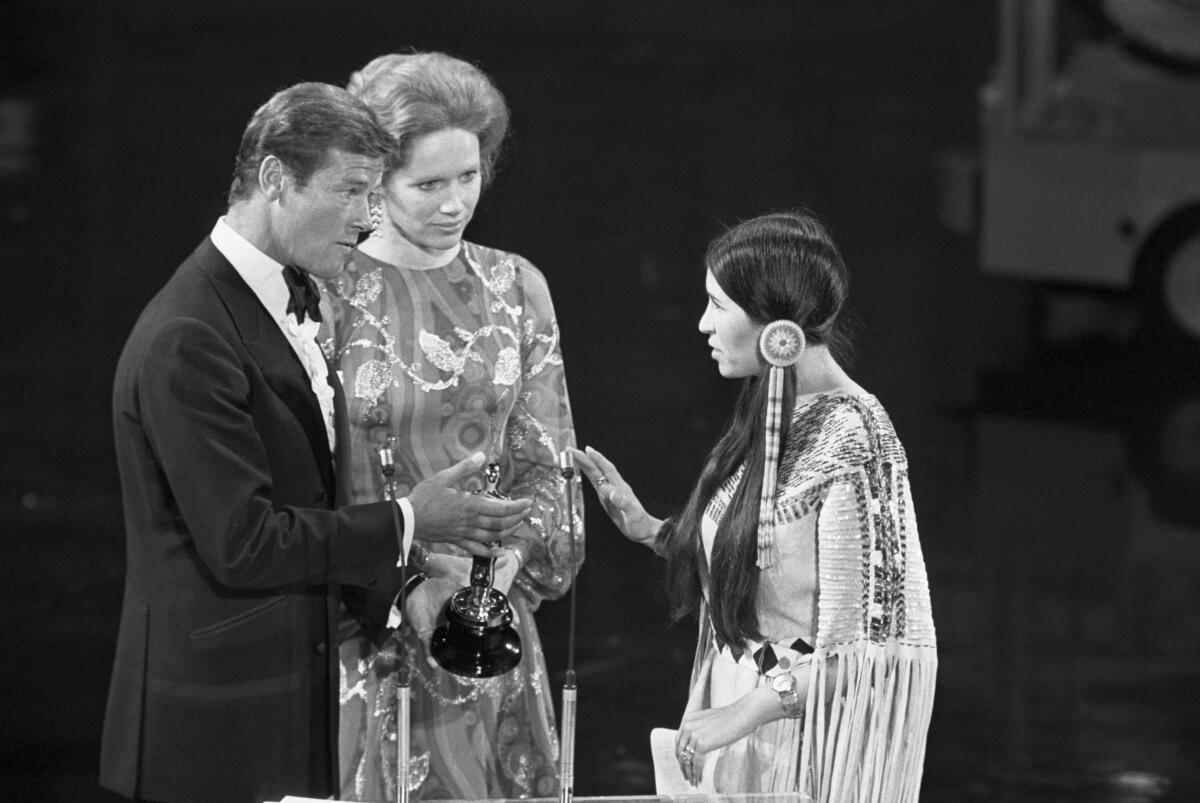
“I beg at this time that I have not intruded upon this evening and that we will in the future, our hearts and our understandings will meet with love and generosity,” Littlefeather said.
As Littlefeather spoke, the audience reacted with a confused mix of cheers and boos. In an interview with the academy this year, Littlefeather recalled spotting actor John Wayne being restrained by security guards from rushing the stage.
“[Wayne] did not like what I was saying up at the podium,” Littlefeather claimed. “So, he came forth in a rage to physically assault and take me off the stage. And he had to be restrained by six security men in order for that not to happen.” (The specific detail of Wayne being held back by half a dozen security guards has since been disputed by film scholars.)
Hollywood loves to recount how John Wayne tried to storm the stage to attack Sacheen Littlefeather. It didn’t happen.
Littlefeather was born Marie Cruz on Nov. 14, 1946, in Salinas, Calif. Her father was from the White Mountain Apache and Yaqui tribes and her mother was white. Both were saddle makers. They separated when Littlefeather was 4, after which she was raised largely by her grandparents. She took the name Sacheen Littlefeather after high school. Sacheen, she said, was what her father had called her; the surname came from a feather she often wore in her hair.
Her entry into acting corresponded with her activism. She was part of the Native American occupation of Alcatraz Island in 1969, she said, and began acting with San Francisco’s American Conservatory Theater in the early ’70s.
Littlefeather said she met Brando through her neighbor, “Godfather” director Francis Ford Coppola. She had known Brando for about a year before he called her the night before the 1973 ceremony, invited her to his house and asked her to attend in his place.
In the wake of her appearance at the Oscars, Littlefeather continued to stir controversy. Even as she was cheered by Native Americans for taking a civil rights stand, false stories soon spread claiming that she was not a real Native American.
Months later, Brando expressed his own misgivings about the position he’d put Littlefeather in: “I was distressed that people should have booed and whistled and stomped, even though perhaps it was directed at myself,” he told Dick Cavett. “They should have at least had the courtesy to listen to her.”
With few opportunities in Hollywood, Littlefeather soon abandoned whatever ambitions she’d had of forging an acting career and dropped almost entirely out of the public eye. Still, her Oscar notoriety never completely faded. Years later, comedian Dennis Miller joked dismissively on “The Tonight Show” about then-Senate candidate Elizabeth Warren, who’d claimed some Cherokee ancestry: “She’s about as much Indian as that stripper chick Brando sent to pick up his Oscar for ‘The Godfather.’”
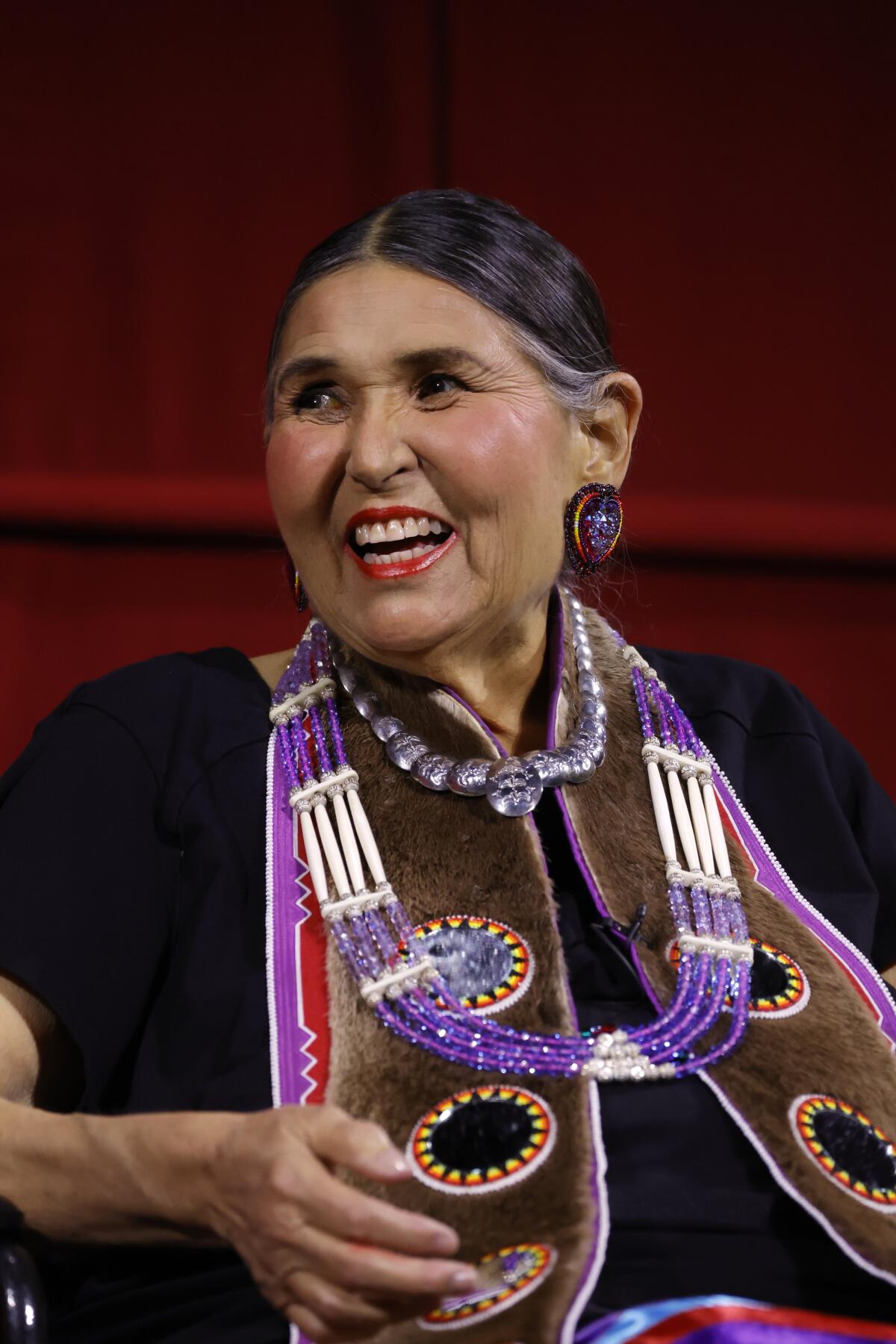
It would take nearly 50 years for the academy to officially apologize to Littlefeather, which it did this summer.
In a June letter signed by former academy President David Rubin, the organization acknowledged that the “abuse” Littlefeather endured in the wake of her onstage statement was “unwarranted and unjustified.”
“The emotional burden you have lived through and the cost to your own career in our industry are irreparable,” the academy statement read. “For too long the courage you showed has been unacknowledged. For this, we offer both our deepest apologies and our sincere admiration.”
Sacheen Littlefeather went onto the Academy Awards stage on behalf of Marlon Brando to speak about the depiction of Native Americans in Hollywood.
The academy honored Littlefeather two weeks ago with an evening of “conversation, reflection, healing and celebration” during which she spoke with producer and academy member Bird Runningwater, co-chair of the organization’s Indigenous Alliance, and revisited the night she declined Brando’s Oscar.
“I went up there like a proud Indian woman, with dignity, with courage, with grace and with humility,” Littlefeather said, “and as I began to walk up those steps I knew that I had to speak the truth.”
Littlefeather added that she welcomed the academy’s gesture, believing it went beyond her and what happened in 1973.
“I am here accepting this apology not only for me alone, but as an acknowledgment, knowing that it was not only for me but for all of our Nations, who all so need to hear and deserve this apology,” Littlefeather said. “Please, when I am gone, always be reminded that whenever you stand for your truth, you will be keeping my voice and the voices of our Nations and our people alive.”
The Associated Press contributed to this story.
More to Read
Only good movies
Get the Indie Focus newsletter, Mark Olsen's weekly guide to the world of cinema.
You may occasionally receive promotional content from the Los Angeles Times.
